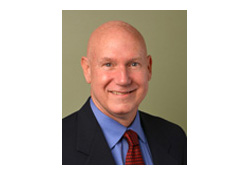Taking a Healthy Approach
.
by Rev. Dr. David Elseroad
Licensed Marriage and Family Therapist with LCC
.
We’re Too Much In Love for Problems
The couple had come for pre-marital sessions. They gazed dewy-eyed at each other, lost in the bliss of their new-found love. Prodded to look at how they communicate with each other, back came the protest heard from many a couple seen for marriage preparation over the years: “Oh, Pastor, we have no trouble communicating. We never argue, we’ve never even had a fight. We’re too much in love for that!” There was something unreal about that. Just give them time, I thought.
The Realities of Married Life
Conflict and disagreement in a marriage are well-nigh inevitable. How could they not be? We’re not dealing with clones of one another, but two distinct individuals, each with their own unique personality and background, their own views, needs and wishes. One might think that a happy marriage would be one in which conflict and disagreement were rare or even non-existent. But it isn’t so. In fact, the greatest predictor of a lasting, satisfying marriage is not the absence of conflict, but the couple’s ability to resolve the conflicts that will inevitably surface. Couples do that in different ways. Some talk out their differences and reach a mutually satisfying compromise. Some avoid their conflicts, agreeing to disagree and never clashing head-on. And some battle it out, the intense energy of their volcanic arguments carried over to affection once they’ve made up.
Recognizing the Essentials
Couples do differ in their style of conflict resolution — and even in understanding what a resolution looks like. But more important than actually solving a conflict or problem is feeling good about the interaction. As couples contain and work through negative feelings and actions toward each other and experience positive feelings and interactions, they are maintaining an equilibrium that is critical to their marital health and happiness. That balance, as psychologist and marriage specialist John Gottman has shown in his exhaustive study of married couples, is by no means a 50/50 positive to negative interaction. Rather it is 5 to 1: for every instance of conflict, fighting or negative interaction, there must be five experiences of positive feelings and interaction to sustain a stable and satisfying marriage. Like the pH balance of acidity and alkalinity critical for fertile soil, in the same way the preponderance of warmth, love and fun, expressed in hugging, smiling, complimenting and cooperating, is essential to spouses’ growth and commitment in marriage.
Healthy Development is Possible
Couples locked in patterns of negativity can move out of them. They can look at how they handle disagreements and conflicts, learn how to communicate their thoughts and feelings without resorting to personal attack, contempt, defensiveness or withdrawal. They can avert escalation of arguments by monitoring their inner self-talk and practicing self-soothing techniques when feeling overwhelmed. Couples can nurture positive interactions, showing care and concern, affection and appreciation. They can grow in understanding and empathy for one another, renewing or recovering their essential connection of love and respect. In this endeavor spiritual resources can be of great help, with Christian faith a bedrock for newness of personal and conjugal life. “Be kind and compassionate to one another,” we are reminded, “forgiving each other, just as in Christ God forgave you” (Ephesians 4:32); God’s grace and empowering Spirit are prime positives! Couples may need help with their change strategy, working with a marital therapist to move from negativity to being “positively married”!
_______________________________________________________________________________________
Rev. Dr. David Elseroad is a licensed Marriage and Family Therapist with LCC. He sees couples, as well as teens, adults and families, at LCC’s Manhattan, Bronxville and Mineola. Contact Lutheran Counseling Center at 516-741-0994 or 1-800-317-1173 to set up an appointment, or visit us at https://www.LCCNY.org.



